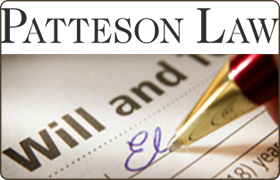Big Sandy Estate Lawyer, Texas, page 2
Sponsored Law Firm
-
 x
x

Click For More Info:
-
Patteson Law
218 N Broadway Ave, #304, Tyler, TX 75702» view mapEstate Wisdom. Experience. Integrity.
As a strong, aggressive advocate for his clients, and a well-respected member of the legal community, you can rest assured that your case is in good hands.
800-769-7481
Gregory A. Fraser (Greg)
Divorce & Family Law, Estate, Lawsuit & Dispute, Real Estate
Status: In Good Standing Licensed: 36 Years
Mark L. Boon
Real Estate, International, Industry Specialties, Estate Planning
Status: In Good Standing Licensed: 48 Years
Jason Andrew Holt
Commercial Real Estate, Litigation, Wills, Business & Trade
Status: In Good Standing Licensed: 21 Years
John Miles Darby
Commercial Real Estate, Oil & Gas, Wills, Business & Trade
Status: In Good Standing Licensed: 29 Years
Raymond E. Rogers
Estate Planning, Bankruptcy, Family Law, Criminal, Business
Status: In Good Standing Licensed: 26 Years
Andrew George Khoury
Lawsuit & Dispute, Estate, Corporate, Accident & Injury
Status: In Good Standing Licensed: 30 Years
Kyle Gene Waggoner
Estate Planning, Elder Law, Commercial Real Estate, Business, Estate
Status: In Good Standing
Stephen Miles Spitzer
Civil Rights, Estate Planning, Personal Injury, Business, Mass Torts
Status: In Good Standing
Eric James Kolder
Litigation, Wills, DUI-DWI, Business & Trade, Employee Rights
Status: In Good Standing
 Richard Patteson Tyler, TX
Richard Patteson Tyler, TX AboutPatteson Law
AboutPatteson Law Practice AreasSpecializations
Practice AreasSpecializations
